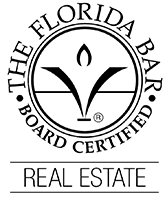Which State’s Laws Apply When Someone Dies Owning Real Property in More Than One State?
Many Florida residents own real property in other states. So, a frequent question is: which state law applies when a decedent owns assets in more than one state? The answer depends on two things:
Domicile of Decedent. The first question is where was the decedent’s domicile at date of death? Domicile generally means the place where someone intends to permanently reside. It is complicated because domicile is not always the same as residence. There are many factors involved in determining domicile: sleeping place, working place, driver license, voter ID, auto registration, mailing address, tax return address, phone, number of days at each place, etc. For some people, all of these are the same place. But for other people, their driver license is from Florida but they have a second home in another state.
Type of Asset. Generally, Florida law applies to land, buildings and other real property located in Florida no matter where the decedent was domiciled at death. Similarly, if a Florida resident owned real property in another state, then the law of that state would apply to that real property. But, for all bank accounts, stocks, bonds, mutual funds, and other personal property, the law of Florida generally applies as to Florida residents.
This means that if a Florida resident dies, then his or her will should be filed first in Florida as the domicile state, and the probate proceeding here is called the domiciliary probate proceeding. Then an exemplified copy of the will and court documents are sent to the other state where real property is located and an ancillary probate proceeding is filed there.






